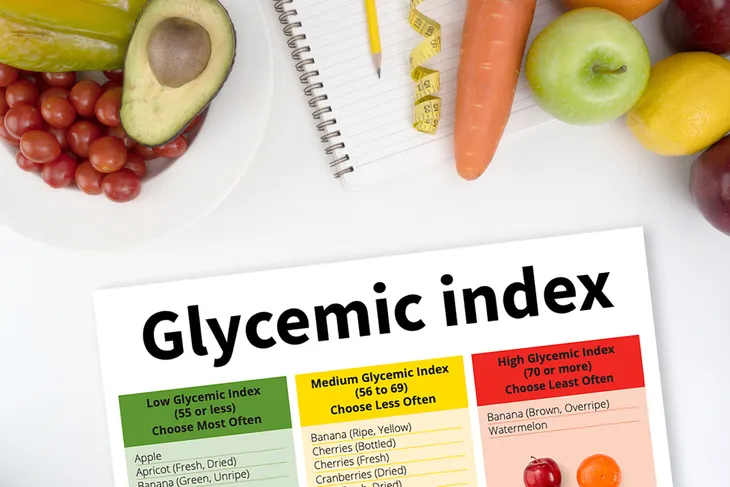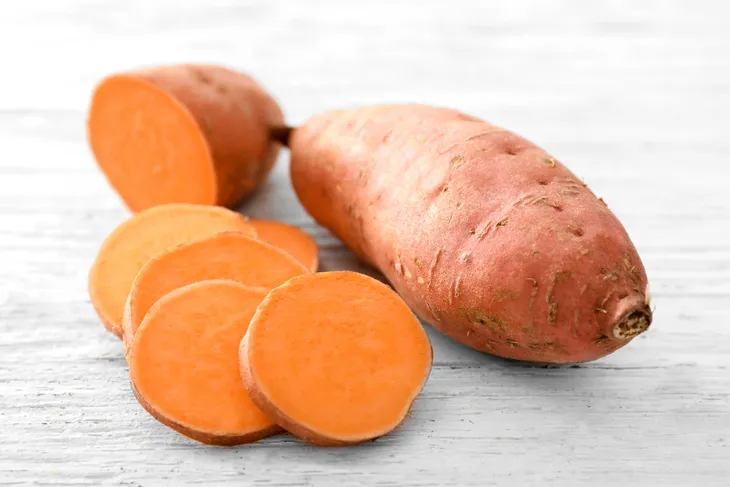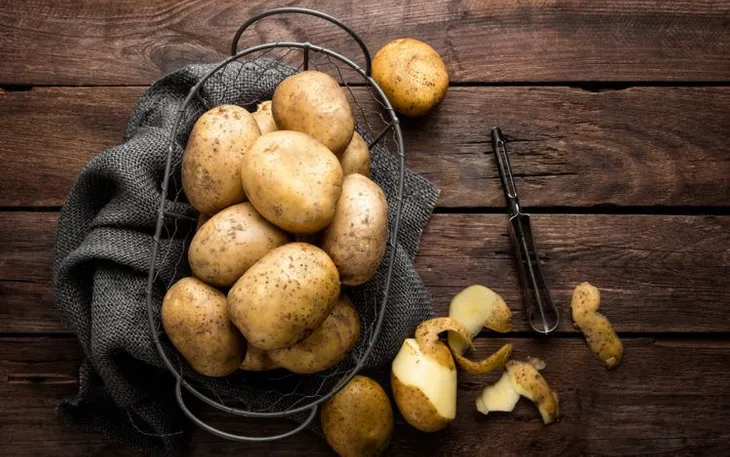Potatoes have developed a bad rap for themselves over the years. The primary problem is that most people think of fried potatoes and not the healthier versions of the spud. But when you cook them right, potatoes can be a nutritious addition to your diet. According to Courtney Darsa, RD from Everyday Health, “In general potatoes are packed with fiber and white potatoes have more potassium than a banana.” Potato vs. sweet potato: which one should you choose? White potatoes and sweet potatoes are two very similar yet different potatoes that can add great nutritional value to your diet.
Different Origins
Regular white potatoes and sweet potatoes are classified as root vegetables but are not closely related in that category. “Sweet potatoes are from the morning glory family, Convolvulaceae, and white potatoes are nightshades or Solanaceae,” says Healthline.
Regular potatoes and sweet potatoes were originally found in Central and South America but are now harvested in almost every part of the world.
Their Appearances Are Different
Their skin tends to be similar, dark brown and thick but underneath it’s a different story.
Sweet potatoes typically are reddish-orange but do come in other colors such as purple, red, and yellow. Regular potatoes can be white or yellow inside.
Nutrition Similarities
Many of the nutrition statistics of sweet potatoes and regular potatoes are similar. They both are about 90-calories and contain about 2-grams of protein and 21-grams of carbohydrates.
It’s when you look at the vitamins and minerals that you begin to see the stark differences between these two starches.
Nutrition Differences
The greatest vitamin difference between the two types of potatoes is vitamin A. Sweet potatoes contain 107-percent of your daily value (DV) of vitamin A, whereas regular potatoes only contain 0.1-percent DV.
Luckily all is not lost with a regular potato. They contain 17-percent DV of potassium and sweet potatoes only carry 10-percent.
Different Glycemic Index
One way foods are ranked is by their glycemic index (GI). A glycemic index is a system that ranks foods on how it affects your blood sugar. “Foods with a GI of 70 or higher cause a more rapid increase in blood sugar compared with foods with a medium GI of 56-69 or a low GI of 55 or less,” says Healthline.
Sweet potatoes have a GI of 44-94, with how they are cooked being the varying factor. A regular white potato has a GI of 111 whereas a red potato has a GI of 89, says the source.
How Cooking Methods Change the Glycemic Index of a Potato
The way the potato is cooked is what brings in such a wide range in the glycemic index. A sweet potato that is baked will have a higher GI than a boiled sweet potato because the starch is gelatinized during the baking.
If you have diabetes then you should stay away from foods with high GI. But just choosing one potato over the other isn’t a safe-proof way of keeping the GI low. You also need to take into account how the potato is cooked.
Sweet Potatoes Have Higher Beta Carotene
One of the primary differences between potatoes and sweet potatoes is their beta carotene levels. Beta carotene is a carotenoid that gives vegetables their orange color and converts them into vitamin A.
Everyday Health says, “people whose diet included the highest level of beta carotene had a 17 percent lower risk of premature [passing] from all causes compared to a group who ate the least amount.”
White Potatoes Still Have Many Great Features
Just because sweet potatoes have more beta carotene doesn’t make them the superior spud. Beta carotene is just one nutrient that makes up sweet potatoes.
Regular white potatoes have plenty of other great features about them that need to be weighed against the competition.
Potatoes and Your Overall Health
At the end of the day, the differences between a sweet potato and a regular potato are what make them so great. If you need more vitamin A or beta carotene in your diet then a sweet potato is what you should reach for. However, if potassium is what your body needs then go for white potatoes.
The real difference-maker for these potatoes is how you cook them. Baking or frying potatoes will increase the sugar and calories where boiling will keep it low. Assess what your body needs are and make sure you prepare your spuds the right way!












